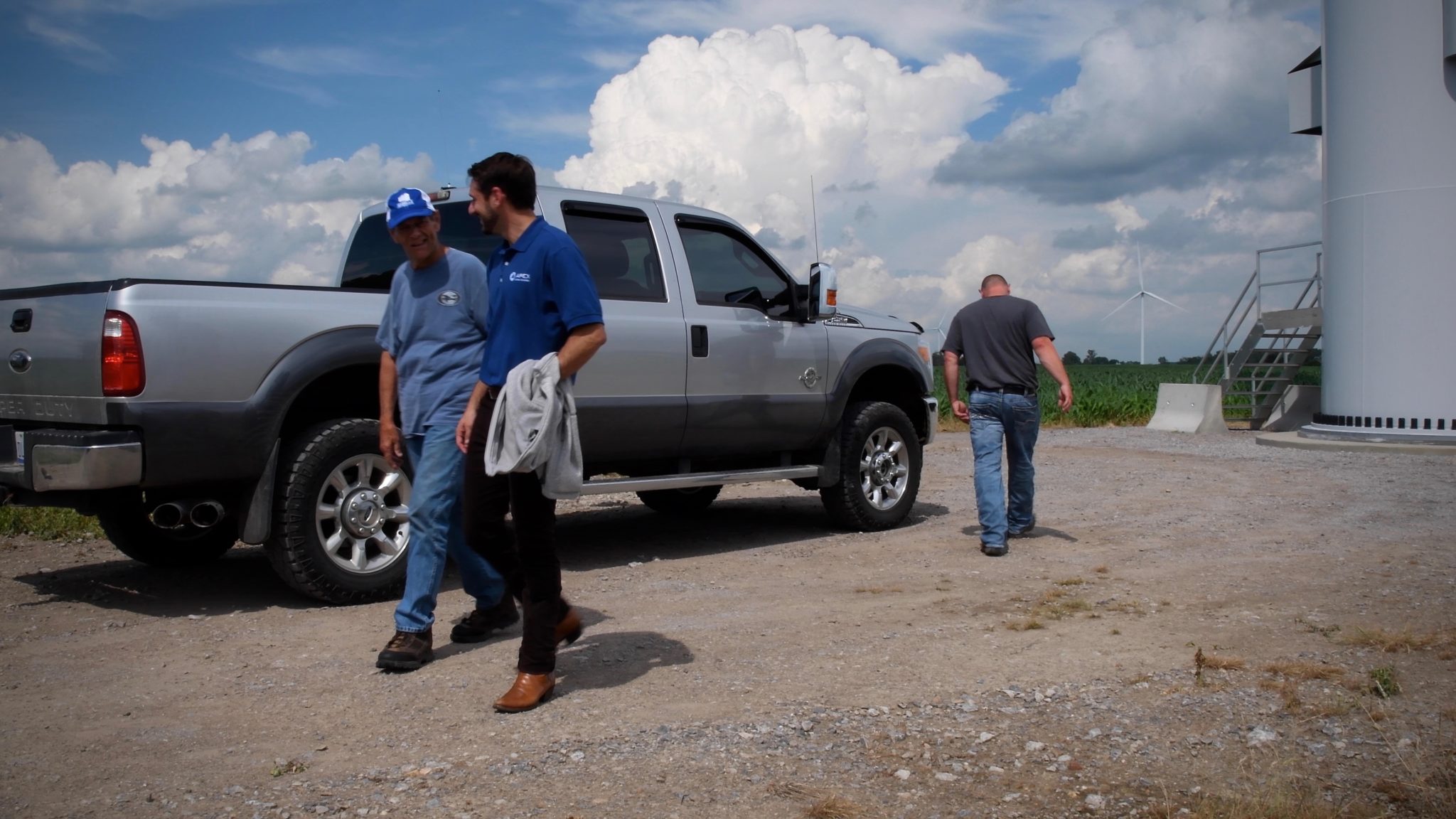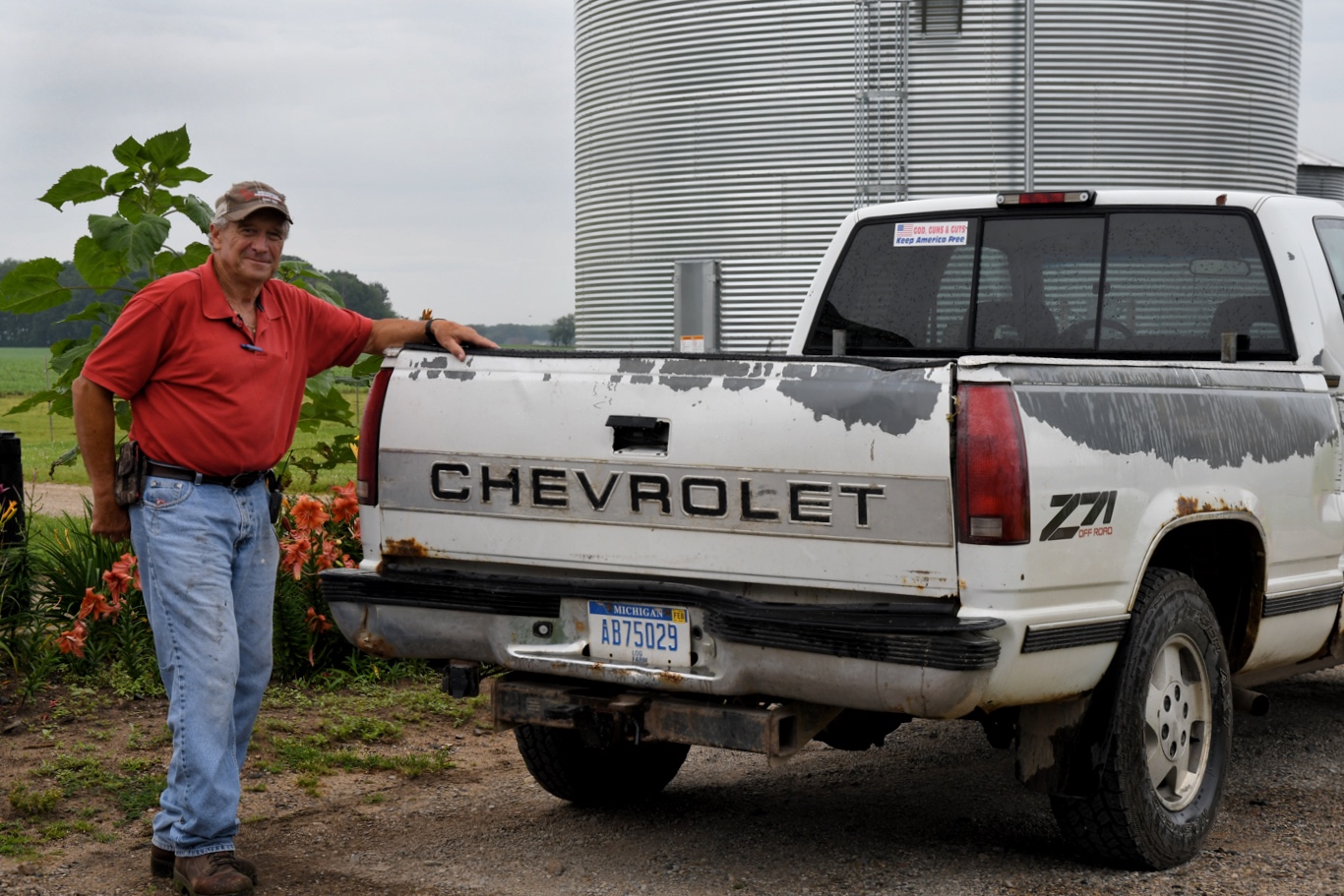Building Community in Michigan
The importance of local engagement in bringing a utility-scale wind project to life has skyrocketed.
In the early days of wind development, the process was largely a numbers game. Developers focused on science, engineering, and business, seeking out a strong wind resource, access to transmission, and purchasers for the power that their turbines would one day produce.
After leases were negotiated and signed with local landowners, engagement with the broader community was often limited to a handful of requisite open houses or county hearings to satisfy legal obligations. Some effort would be made to answer the questions of those potentially opposed to the project, and final approvals were often handled by local elected or appointed officials.
In recent years, however, the trends that have altered the political calculus nationwide have taken root in the wind energy development process. Opposition groups, often positioning themselves as local or “grassroots” despite having opaque leadership and funding sources, can spring up online and locally virtually overnight. Time and again, a pattern of disinformation is disseminated via social media, triggering fear and anger to divide communities before the benefits of a wind project can be communicated.
Our recent success at Isabella Wind shows how sincere, authentic, and strategic outreach campaigns can overcome the online opposition playbook.
Of the many ongoing community engagement campaigns under way for Apex Clean Energy projects, our recent success at Isabella Wind in Michigan shows how sincere, authentic, and strategic outreach campaigns can overcome the online opposition playbook. Apex has successfully rallied multiple stakeholder communities around their renewable energy project, ensuring the local voices are heard above all else.
Motivating Support All the Way to the Ballot Box
Isabella Wind is a proposed 400 MW project in central Michigan that was designed from the beginning with the input of community leaders. The project features a locally negotiated, community-based lease that intentionally provides the greatest benefit to the largest number of people possible. When constructed, Isabella Wind will become the largest utility-scale wind project in the state. To date, it has nearly 50,000 acres under lease and approximately 600 individual families participating.
Yet, despite strong local support, Isabella became the target of a professional, well-funded anti-wind organization called the Interstate Informed Citizens Coalition (IICC), which boasts a proven record of stopping wind projects through grassroots engagement and political maneuverings in Michigan and Ohio. After numerous recall attempts against elected officials, the opposition’s efforts culminated this August in a unique ballot initiative in each of the six townships in the project footprint.
Five of the initiatives were designed to transfer zoning authority from the county to the townships, in turn handing over the power to impose wind moratoriums and intensify siting requirements. The sixth challenged an amendment to the wind ordinance in a self-zoned township where opponents perceived the regulations as being too favorable to development. Each had the potential to halt Isabella Wind in its tracks.
Even though Michigan, and its electric utilities, are increasingly committed to a clean energy future, it was looking as though Isabella might face the same fate as numerous other renewable energy projects across the state that had been sidelined by elevated levels of community opposition. In December 2017, Apex ramped up its efforts to help bring the project to fruition, kicking off a campaign that would run for nine months through the state elections in August.
Transparency, Relationships, and Intentionality
Existing research clearly shows that when communities are engaged in a process that is deemed fair, and ample opportunities to provide input are offered, wind projects are much more likely to succeed. To achieve this level of transparency with Isabella, Apex made the strategic decision to delay a key application for a Special Land Use Permit, extending the chance for community members to engage with us directly.
As local stakeholders witnessed our intentionality in working toward a successful project—one that would deliver unprecedented community benefits—they began to truly understand that Apex is a mission-driven company. We believe in the communities that host our projects, and we believe in accelerating the shift to clean energy.
The morning after the local elections, the results were clear. Voters from each of the six townships turned out in record numbers, and all six ballot initiatives were handily defeated. In fact, turnout numbers were so high that by 3 p.m. on election day, more people had turned out to vote in each of the six townships than in any primary election since public records were made available in 2008.
There is still work to do, but Apex looks forward to helping Michiganders achieve their clean energy goals and strengthen its hardworking rural communities.
As Isabella proves, the days of formulaic wind development are long gone, replaced by a process that’s both science and art—and at the very heart of which lies intentional and sincere local engagement.
Notes from the Field
Notes from the Field
Albert Jongewaard, Public Affairs Manager, Isabella Wind
Change is hard, but so is any work that is truly worth doing. I have made it my life’s mission to dig into the hard work of changing hearts and minds. Among other things, this commitment led me to fight for political change in the Deep South, allowed me to represent several Gulf Coast communities in the immediate aftermath of the BP Deepwater Horizon oil spill, and led me to study such heroes as Dr. Martin Luther King Jr., Reverend Fred Shuttlesworth, Maxey Thomas, and the thousands of unnamed foot soldiers who fought for change throughout the Civil Rights movement. It is also what compelled me to ask what I can do to help our nation shift more quickly to a clean, vibrant, and renewable energy economy, a question that ultimately brought me to Apex. In my role here, I found an answer to that question, and a vehicle that has allowed me to be a part of the solution.


